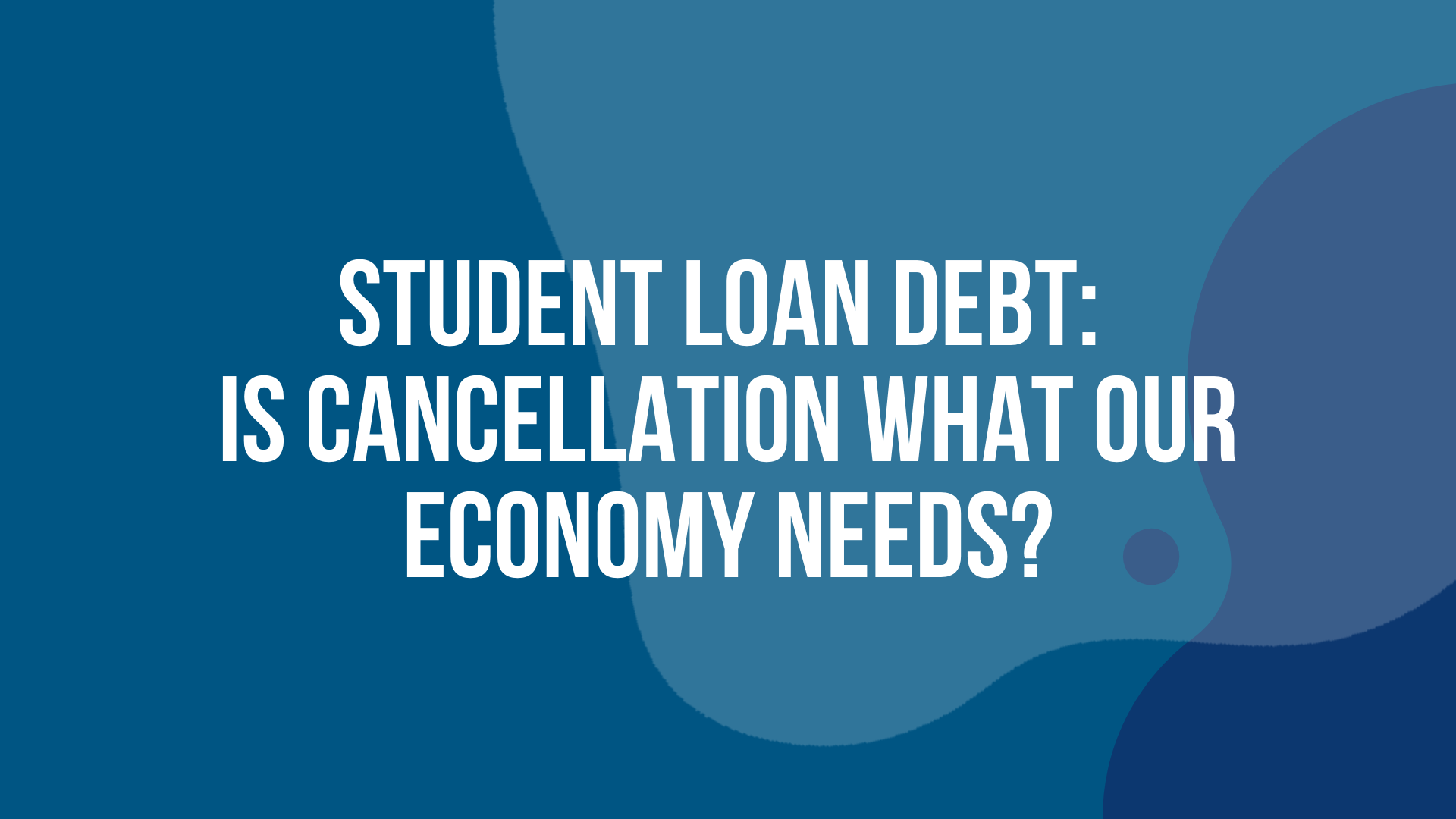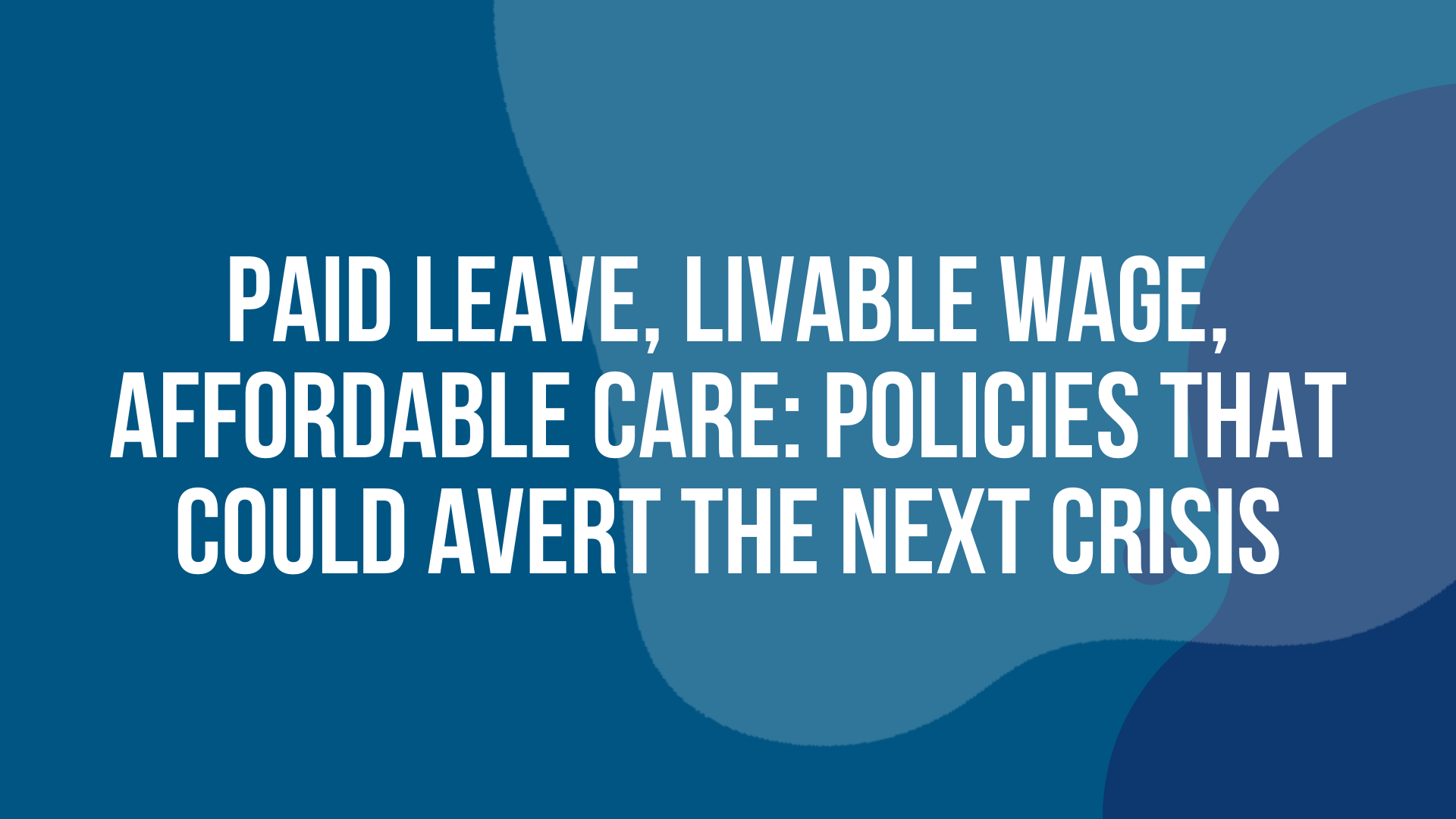Managing, Collecting, and Forgiving Consumer Debt: Lessons for Policymakers and Business Leaders
Before COVID-19, consumer debt in America was at an all-time high of over $14 trillion– exceeding 2008 debt levels in real terms– according to the New York Federal Reserve. During and after COVID-19, the unprecedented levels of unemployment will leave millions more in delinquency or default on their debt – and, potentially, bankrupt.
Non-mortgage consumer debt (student loan, credit card, auto, and medical, to name a few) has become a feature of financial life in the United States, yet the debt management and collections system disproportionately hurts low-income households and people of color, and without immediate solutions, economic recovery for the whole of the United States will be stunted.
The good news is that some cities and states are acting to alleviate the burdens of government fines and fees, and limit collections actions during a time people need their stimulus payments to meet day-to-day needs. But what will happen when these alleviation actions end? What about consumer protections for the vast amounts of non-governmental debt? Will forgiving debt really build wealth equitably and support economic recovery?
Experts:
- Described the economic impact of the 68 million Americans who had debt in collections on their credit report prior to COVID-19
- Shared early indications of how households are responding to the pandemic and what that means for middle-class families
- Highlighted responses by cities and states, including alleviating the burden of government fines, fees, and collections
- Explored medium-term and long-term policies to alleviate the debt burdens on millions of Americans – and free people from cycles of debt and poverty which hinder long-term wealth gain
The Aspen Institute Financial Security Program’s research is made possible with support from the Annie E. Casey Foundation, the MetLife Foundation, The Prudential Foundation, and the W.K. Kellogg Foundation.
What you need to know:
Aspen EPIC developed a Consumer Debt Primer to understand the changing dynamics of consumer debt, how households are managing the debt they are carrying, and the conditions under which it is a source of financial insecurity versus an opportunity for future mobility.
Aspen EPIC’s research identified seven specific consumer debt problems – all amenable to solutions – that result in financial insecurity and damage well-being. View their findings here: Lifting the Weight: Solving the Consumer Debt Crisis
Tipping Points I: Mapping and Understanding the Impact of Debt on Household Financial Well-Being
How Debt Collectors Are Transforming the Business of State Courts
Featured Speakers
 Karen Biddle Andres
Karen Biddle Andres
Director of Policy and Market Solutions and Project Director of the Retirement Savings Initiative at the Aspen Institute Financial Security Program, @AspenFSP
Karen is the Director of Policy and Market Solutions and Project Director of the Retirement Savings Initiative at the Aspen Institute Financial Security Program, Karen works to advance promising solutions to American families’ most pressing financial security challenges. Working across sectors and disciplines, Karen and the Policy and Market Solutions team seek to highlight market and policy gaps, jumpstart creative solutions, and build a diverse set of leaders who can turn ideas into action.
Before coming to the Aspen Institute, Karen spent over ten years at the Financial Health Network (formerly the Center for Financial Services Innovation), where she built the Long-Term Savings and Retirement Practice. Previously, Karen led the development of the Financial Health Network itself. She began her career in the retirement industry as a bilingual 401(k) plan educator for both Strong Funds and Wells Fargo Institutional Trust Services.
Karen holds M.B.A. and M.P.P. degrees from the University of Michigan. She also holds a B.A. in Spanish and Art History, with a minor in Mathematics, from Indiana University. She lives in Ann Arbor, Michigan, with her husband, Matt, and two young sons.
 Laura Berlind
Laura Berlind
Executive Director, The Sycamore Institute, @SycamoreTN
Laura Berlind joined The Sycamore Institute in 2015 as the founding executive director. She provides Sycamore’s organizational vision, strategic planning, and day-to-day management. Laura holds a master’s degree in public policy with a focus on business and government from Harvard’s Kennedy School of Government and a bachelor’s degree from Boston College. Her role at Sycamore reflects her longstanding commitment to using data and research to bring together diverse stakeholders and work complex problems.
Laura brings with her almost fifteen years of nonprofit and government finance experience, most recently serving as the CEO of Renewal House, a holistic residential treatment center for women and their children affected by addiction and poverty. Prior to her role at Renewal House, she worked as a financial analyst at Vanderbilt University and as a vice president in the public finance department at Ambac Financial Group in New York, NY. At Ambac, Laura worked with wide range of government and nonprofit clients to evaluate and execute publicly funded capital projects ranging in size up to $800 million.
Laura maintains a strong connection to her local community through service on nonprofit boards and other volunteer activities. She is currently serving as the chair of the Tennessee Department of Mental Health’s Planning and Policy Council and is an active member of Rotary Club. In 2014, Laura received the Volunteer of the Year award from the Tennessee Association of Alcohol, Drug and Other Addiction Services. She was also recognized as one of the Nashville Business Journal’s 2014 Forty Under 40 award winners and was a member of the 2016-17 class of Leadership Tennessee.
 Mayor Melvin Carter of Saint Paul, Minnesota, @MayorCarter
Mayor Melvin Carter of Saint Paul, Minnesota, @MayorCarter
Melvin Carter is the 46th mayor of the City of Saint Paul, Minnesota’s Capital City.
A fourth-generation Saint Paul resident, Mayor Carter leads with an unapologetic equity agenda. Since taking office in 2018, his accomplishments include raising the city’s minimum wage; tripling free program in rec centers; eliminating late fines in public libraries; reestablishing an Affordable Housing Trust Fund; expanding immigrant & refugee support resources; and launching an Office of Financial Empowerment. One signature initiative is CollegeBound Saint Paul, Mayor Carter’s plan to start every child born in the city with a $50 College Savings Account, starting January 1, 2020.
Passionate about helping others engage in civic processes, Mayor Carter has trained progressive activists and candidates in over 30 states, and commonly recites his administration’s mantra: “Building a city that works for us all means we all must do the work.”
Prior to his election in 2017, Mayor Carter has served as a Saint Paul City Council Member; Founding Board Chair of the Saint Paul Promise Neighborhood; Director of the Minnesota Office of Early Learning; and Executive Director of the Minnesota Children’s Cabinet.
A proud graduate of the Saint Paul public schools, Mayor Carter holds a Bachelor’s Degree in business administration from Florida A&M University and a Master of Public Policy from the Humphrey School of Public Affairs at the University of Minnesota.
He currently resides in Saint Paul’s Historic Rondo neighborhood with his wife, Dr. Sakeena Futrell-Carter, and their children, just a few doors down from his childhood home.
 Jerry Nemorin, @JNemorin Founder and CEO, LendStreet, @LendStreet
Jerry Nemorin, @JNemorin Founder and CEO, LendStreet, @LendStreet
Jerry is the Founder & CEO of LendStreet, a financial health platform that helps consumers negotiate and pay off their debt with a new loan.
Prior to founding LendStreet, Jerry worked at Bank of America Merrill Lynch in its Global Corporate & Investment Banking division, helping major companies restructure their debt during the financial crisis and raise money from the high yield debt market. Jerry is now putting that expertise to use in a way that helps consumers in financial distress deal with their debt and rebuild their credit.
Jerry received a B.S. in Finance and Exercise & Sports Science from the University of Florida and an M.B.A. from the Darden Graduate School of Business Administration at the University of Virginia.
Learn more
This event is part of the Conversations in Financial Security in Response to COVID-19: How to Triage, Recover, and Stabilize series, an ongoing digital event series hosted by the Aspen Institute Financial Security Program that works to triage the immediate effects of the current pandemic, design solutions allowing households to recover, and address the structural challenges to stabilize financial security at the household level.

